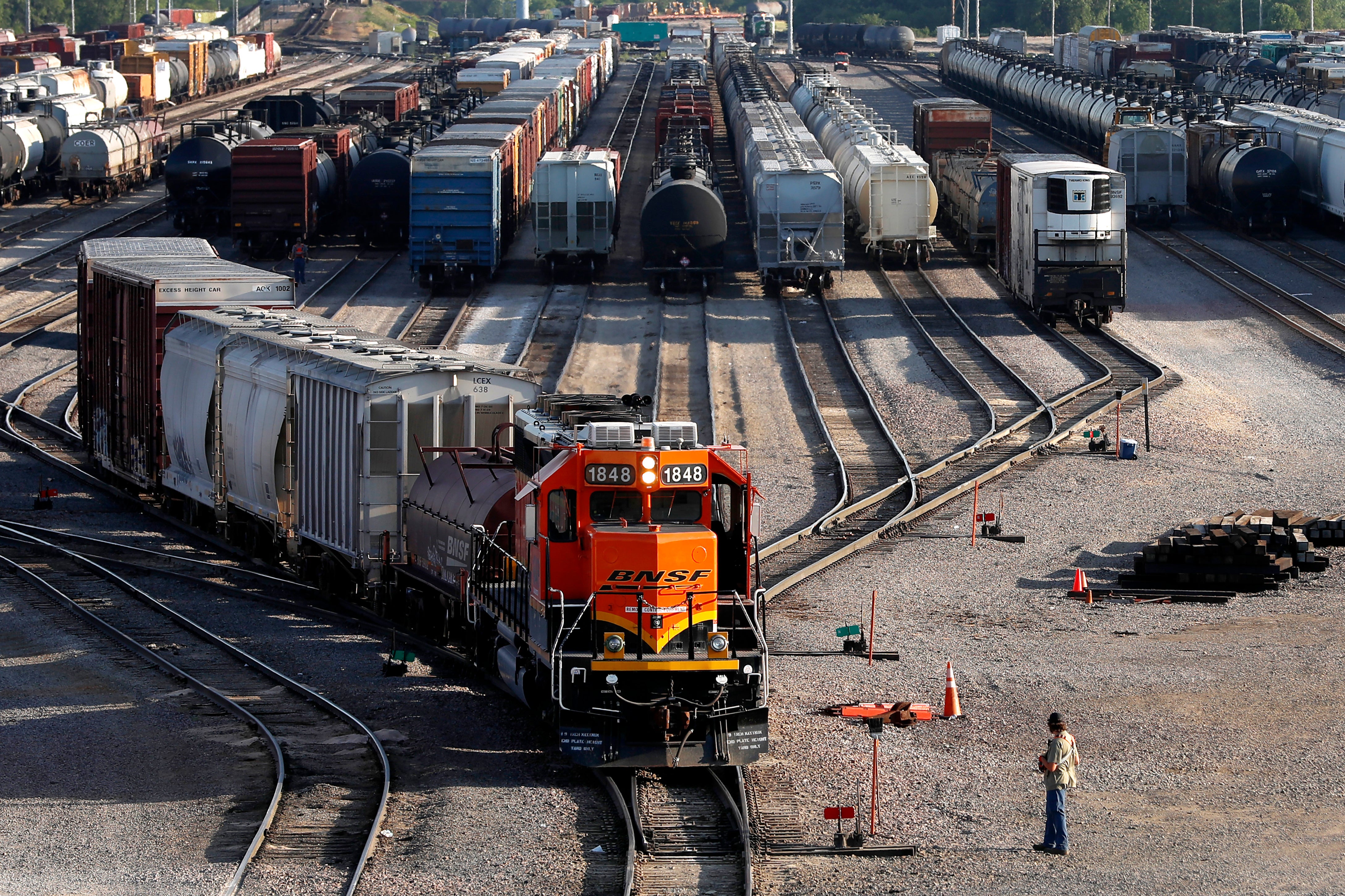Unions under pressure because rail strike may cost $2B a day
The major freight railroads say in a new report designed to put pressure on unions and Congress that a strike would cost the economy more than $2 billion a day and disrupt deliveries of all kinds of goods and passenger traffic nationwide if it happens after a key deadline passes next Friday without a contract agreement

Major freight railroads, in a bid to apply pressure on unions and Congress, say a strike that could come after a key deadline passes next week would cost the economy more than $2 billion a day and disrupt deliveries of all kinds of goods and passenger traffic nationwide.
The Association of American Railroads trade group issued a report estimating the dire consequences of a strike Thursday, one day after U.S. Labor Secretary Marty Walsh took part in talks to try and help hammer out an agreement. A strike or lockout won't be allowed until next Friday at the soonest under the federal that governs railroad negotiations.
Five of the 12 unions involved that together represent some 115,000 workers have announced tentative agreements covering over 21,000 workers based on a set of recommendations that a special panel appointed by President Joe Biden made last month, but several key unions are holding out in the hope that the railroads will agree to go beyond those recommendations and address some of their concerns about working conditions.
The Presidential Emergency Board recommended a five-year deal, retroactive to 2020, that includes 24% raises and $5,000 in bonuses. But it wants unions to take their concerns about attendance policies, paid leave and expenses to arbitration or to negotiate separately with the railroads. Unions say their workloads have become unbearable after railroads eliminated nearly one-third of their workforces over the past six years.
The railroad trade group said a strike would idle some 7,000 freight trains a day run by CSX, Union Pacific, BNSF, Norfolk Southern, Kansas City Southern and other railroads and disrupt passenger operations nationwide because Amtrak and half of all commuter rail systems rely at least partly on tracks owned by the freight railroads.
The AAR also said it would be impossible for trucks to pick up the slack if railroads shut down because roughly 467,000 additional trucks a day would be needed to handle all the freight railroads deliver and there is already a shortage of trucks and drivers.
AAR CEO Ian Jefferies said the unions should accept the recommendations of the Presidential Emergency Board because they would deliver the biggest raises in nearly 50 years and they represent a compromise.
"Should negotiations fail and result in a work stoppage, Congress must act to implement the PEB recommendations,” Jefferies said.
A Labor Department spokesman confirmed that Walsh took part in the talks Wednesday. If this contract dispute does fall to Congress to resolve, lawmakers might be forced to make some difficult decisions in an election year.
A coalition of 31 large agricultural groups sent a letter to Congress Thursday urging lawmakers to be prepared to intervene and block a strike if the two sides can't reach an agreement before next Friday's deadline. They say they are dealing with delayed deliveries because railroads are shorthanded.
“Most freight railroads currently lack extra capacity to make up for down time," the agricultural groups said in their letter. “Thus, a sizable portion of freight backlogged due to a stoppage may never be made up leading to less production from rail-dependent businesses to the detriment of producers and consumers.”
Railroad analyst Anthony Hatch said the unions are trying to take advantage of the current environment with Democrats in control of the White House and Congress and a tight job market, but ultimately he doesn't think a strike will happen.
“It makes sense for them to hold on until the last minute and try to get the best deal that they can. For the railroads, it makes perfect sense for them to say a disruption would be cataclysmic,” Hatch said.
Even if a strike were to happen, Hatch predicted it would “last not weeks, not days, not hours but minutes” because Congress would intervene.
The heads of the two biggest rail unions — the Sheet Metal, Air, Rail and Transportation Workers — Transportation Division union that represents conductors and the Brotherhood of Locomotive Engineers and Trainmen union that represents engineers — said in a joint statement last week that Congress should remain on the sidelines because that would put more pressure on the railroads and help them reach an agreement workers will approve.